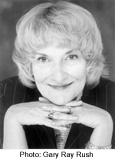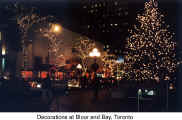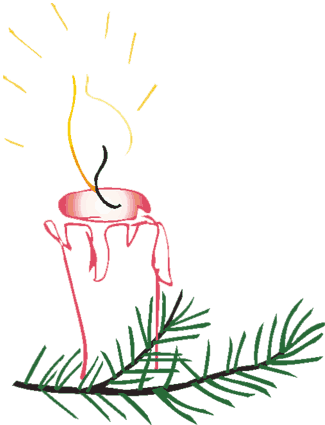

Letter from the Editor

A few years ago I wrote a Christmas editorial about the subject of nonalignment in the areas of science and the humanities and how religion is probably the only subject qualified to pull these two major categories together, especially if you look upon religion as a search for truth, which appears to be the original meaning of the word itself.
 For
truth exists not only by itself as itself, it applies itself not only to
itself, it is usually profound enough to have a broad application and is
verifiable in a scientific manner, which brings me to the other meaning of
religion, the more in use one about the subject of hope and glory and
believing in other forces than the ones measurable in ohms and amps.
For
truth exists not only by itself as itself, it applies itself not only to
itself, it is usually profound enough to have a broad application and is
verifiable in a scientific manner, which brings me to the other meaning of
religion, the more in use one about the subject of hope and glory and
believing in other forces than the ones measurable in ohms and amps.
Or are they measurable after all? It has been found that even thought itself can be measured these days, and if it is a traumatic thought it is somewhat different from a pleasant one.
It is only a few hundred years ago that a certain Mr. Darwin caused a big ruckus in religious circles when he announced that the whole story of creation is nothing but a hoax and totally explainable with evolution and the fact that any species will adapt to its environment.
 At
that time churches, as organised bodies were not prepared or able to prove
anyone wrong. Nowadays, if they would employ certain devices, they probably
could. It could be proven that thought is not a random occurrence but a
created process that relies on the ability to reason, and if not that, then
it could be proven that thought is a process that requires data to be
aligned by someone who can compare existing bodies of knowledge and align it
with a present or past situation and draw a conclusion from that. This is an
activity, which has nothing to do with evolution. It is not random or a
necessity to survive as an organism that propels such activity, but a
curiosity that exists alongside intelligence, driven by a decision maker.
At
that time churches, as organised bodies were not prepared or able to prove
anyone wrong. Nowadays, if they would employ certain devices, they probably
could. It could be proven that thought is not a random occurrence but a
created process that relies on the ability to reason, and if not that, then
it could be proven that thought is a process that requires data to be
aligned by someone who can compare existing bodies of knowledge and align it
with a present or past situation and draw a conclusion from that. This is an
activity, which has nothing to do with evolution. It is not random or a
necessity to survive as an organism that propels such activity, but a
curiosity that exists alongside intelligence, driven by a decision maker.
And who might that be do you ask……Good question. I am a firm believer that my brain cannot do anything without such a decision maker, my body could not function in a pro survival manner on its own for any length of time (other than perhaps as a zombie), unless there is the soul, I myself, to give the process direction. I select, rightly or wrongly, what is going to happen with me.
I know that my brain thinks about as much as my navel does. There is only one difference: the waves in the brain are measurable, the ones in my navel probably not, or if, then there would not be much to measure. The brain as the seat of the entire neurological central station of this thing we call a body, is not the keeper of my thoughts and does not generate them, but they can best be measured there, due to the fact that the area is so highly sensitive and all impulses of decisions get relayed there to be executed somewhere in the body as in: I think I want to take a step forward, decide to do so, the decision is relayed to the nervous system and activates that premeditated step. Only when we learn to use these bodies in our childhood is this process apparent every time a child learns something new; after a while it becomes a common occurrence and an automatic function later on.
This kind of thought is a bit uncomfortable because it insists on the fact that we are responsible for our actions and does not allow for excuses, explanations perhaps, but not excuses. Every effect we caused we are also responsible for, all the way. This in turn makes it important to consider our actions much more carefully, because our decisions will cause consequences.
Where then are we to get a guideline on what is right and wrong, what to do what not?
For eons people have looked for these guidelines in the realm of religion, and where advice was wisely given it was a most pro-survival guide to follow. Nearly all religious philosophies have such a guideline and they are quite similar to each other. The basics seem to be everywhere: do not steel, do not kill, do not lie and so on.
Each religion has more or less colourful stories relating the revelations that led to these conclusions. And nearly all of them are quite old and relate to existence thousands of years ago. To overcome time and the changes in technologies and to bridge the understanding of people nothing much has been done by the old religions to bring them into present time. Instead each society and culture developed somewhat dissimilar codes of conduct, which are explained in their laws and the execution of justice.
They are nothing but moral codes of behaviour and deal with the concept of punishment, a concept that has not brought about betterment in mankind. Time and time again have we observed that only a spiritual experience has brought revelation of workable truth of some kind.
Therefore religion is more than ever a valid and important
discipline to pursue and to protect from those that want to abuse it for
their own ideas. It is the very reason why we must be permitted to practise
our religions unencumbered, no matter what religion it is and where we are
practising it. A religious practise or experience, a search for truth,
cannot be enforced. It is only valuable and brings about wonderful results
when practised from a free will, honestly and without pretence.
May the universal spirit of Christmas guide all of us to a reality we all can live with.
Merry Christmas
Sybille Forster-Rentmeister
Comments to: editor@echoworld.com

